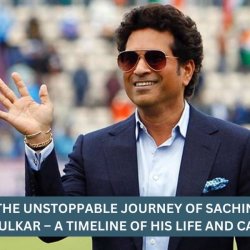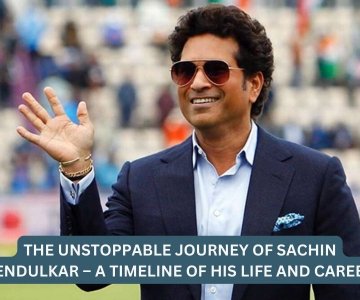Examining Subhash Chandra Bose’s Role in Indian Independence

Subhash Chandra Bose’s Background
Subhash Chandra Bose is an iconic figure in Indian history, best known for his role in the Indian Independence struggle. In this blog section, we’ll explore Bose’s background and influential contributions to the Indian National Movement.
Bose was born in 1897 in an upper-class family from Cuttack, Odisha. He studied philosophy at Fitzwilliam College, Cambridge, and joined the Indian Civil Services (ICS) examination in 1919. However, he resigned from ICS after disagreements with British colonial rule and joined the struggle for India’s freedom movement.
As part of his activism, Bose formed a youth nationalist organization called “Forward Bloc” and worked to popularize revolutionary ideas among young people. He also actively participated in numerous civil disobedience campaigns like NonCooperation and Quit India Movement, which ultimately began to shape the Indian parliament’s policies related to independence.
In 1943, he founded the Indian National Army (INA) which sought to drive out British forces through a combination of armed resistance and diplomatic negotiations with Axis Powers during World War II. This was the first time that an organized military force had been established by Indians to fight for their own independence from colonial rule.
Bose was also instrumental in forming the Azad Hind Government or Provisional Government of Free India (PGFI). This government was established on October 21st, 1943 in Singapore by Japanese forces as part of their collaboration with INA forces during WW2. It sought to bring about self-rule of Indians under Japanese control until they could obtain full independence from Britain after the war ended.
Check out: SURIYA SIVAKUMAR NET WORTH, BIOGRAPHY, MOVIES, FAMILY & LOTS MORE | DTFUN
The Indian Independence Movement
was a prolonged struggle that began in the mid-19th century. This epic battle for freedom from British Rule led to India’s independence on August 15th, 1947. Subhash Chandra Bose, popularly known as Netaji, was a key driving force of this liberation movement. His efforts helped to shape India’s independence and reshape its future.
Netaji was born on January 23rd, 1897 into an affluent family in Cuttack, Orissa. He was raised in a culturally rich environment and developed a great respect for Indian culture and traditions from a young age. As a student, he excelled academically and soon rose to prominence through his oratory skills, political activism, writing abilities, and organizational leadership.
In 1938, Netaji established the Indian National Army (INA), also known as Azad Hind Fauj. The INA was formed with the mission of liberating India from British rule by bringing together patriotic Indian soldiers who had been captured by the Japanese during World War II. Netaji’s goal in forming this army was to create an independent India by recruiting Indian soldiers to fight alongside the Japanese military against the British Army in Asia.
In 1945, Netaji launched ‘Operation U Go’ where INA marched towards Delhi with the hope of overthrowing British rule. However, unfortunately, due to Japan’s surrender that same year this mission did not succeed. Nonetheless, under his courageous leadership, INA took control of some areas near Manipur until it eventually surrendered shortly afterward in August 1945 after Japan accepted defeat at the hands of the Allied Powers.
Bose’s Role in the Non-Cooperation and Civil Disobedience Movements
Subhash Chandra Bose was a key figure in the independence movement of India from British colonial rule. His role in the noncooperation and civil disobedience movements was essential in the struggle for freedom. Here, we’ll explore some of the ways Bose helped shape the development of Indian independence, including his influence from Shivaji, his presidency of the All India Congress Party, tactics of noncooperation and civil disobedience, and the founding of the Indian National Army (INA).
Shivaji’s influence on Subhash Chandra Bose’s activism is particularly noteworthy. Shivaji was an Indian warrior king who fought against Mughal oppression in South Asia during 1674–1680 CE. Bose revered Shivaji and followed his example of challenging imperial forces through revolutionary violence and militant resistance. This recognition set a course for many more ambitious political actions as we shall see below.
Subhash Chandra Bose then went on to preside over the All India Congress Party in 19381939. As president, he called for complete noncooperation with the British administration as part of a plan to gain freedom from imperial rule. He envisioned a unified India, free from all external domination or control. Through civil disobedience tactics such as strikes and boycotts, Bose pushed for Indian autonomy and protest against oppressive taxation or foreign authority.
Formation of the Indian National Army (INA)
The formation of the Indian National Army (INA) is a key milestone in India’s fight for independence and an important part of its historical narrative. The leader behind this great movement was none other than Subhash Chandra Bose, a prominent political figure. He was a fierce advocate of freedom and independence from British rule and he formed the All India Forward Bloc Party to achieve his goals.
Subhash Chandra Bose worked tirelessly towards the formation of the INA, which was a force committed to ending British rule in India. He found support from the Japanese Empire, who were also looking for an ally against Britain, and offered the INA much-needed resources and political support. With these resources, Subhash Chandra Bose was able to organize and lead a formidable army that would come to symbolize India’s opposition to British rule.
The INA went through numerous struggles during their exile in South East Asia such as shortages of food and supplies, yet they continued their fight against British forces with all their might. Subhash Chandra Bose led them with an unwavering commitment to their goal: freedom and independence for India. His ideology resonated with many Indians who saw him as a revolutionary leader who could take on oppressive colonial powers.
Subhash Chandra Bose’s legacy lives on in the INA’s remarkable achievements during World War II which ultimately started an uprising against British rule in India that later culminated in Independence Day on August 15th, 1947. His role in this monumental event can never be forgotten or underestimated as his legacy has touched generations of Indians throughout history.
The Ideology of Swaraj and Netaji’s Legacy
The legacy of Subhash Chandra Bose and his work in Indian independence is still discussed today. His commitment to swaraj, or self-governance and self-rule, was remarkable. This ideology has left a lasting influence on the country, and his legacy is something that will never be forgotten.
Subhash Chandra Bose’s commitment to Swaraj was evident through his integration of nationalism and socialism into India’s freedom fight. He harnessed the power of a mass movement with a sense of unified purpose, convincing millions to join the struggle for independence. This unified political consciousness helped unite diverse communities under one common goal of freedom from foreign rule.
Netaji’s advocacy for decentralized governance has also been widely influential in India’s cultural landscape. He encouraged people to take ownership of their own lives by expressing solidarity with their fellow citizens in the face of external oppression. This belief in self-determination and individual autonomy ultimately helped fuel India’s path to independence.
Netaji’s legacy is still alive and well due to his popularity among the Indian people. This is evidenced by events such as Netaji Subhash Chandra Bose Jayanti, which celebrates the life and achievements of one of India’s greatest patriots every January 23rd. The day serves as a reminder that we still have much progress to make when it comes to fighting foreign control, finding self-governance solutions, and unifying diverse communities under a shared goal all of which were advocated for by Subhash Chandra Bose himself.
Also, check out: RANBIR KAPOOR NET WORTH, BIOGRAPHY, AGE, LOVE LIFE, FILMOGRAPHY & LOTS MORE
Contributions to India’s Struggle for Freedom and Impact on Future Generations
Subhash Chandra Bose is one of India’s iconic freedom fighters and leaders who played a crucial role in the struggle for independence. He was a vocal advocate of a free India and dedicated his life to creating an independent nation. Subhash Chandra Bose was born on 23rd January 1897, in Cuttack, Orissa (now Odisha). He was an active member of the Indian National Congress and was elected as President of the All India Youth Congress in 1923.
As part of his nationalist ideals, Subhash Chandra Bose organized public protests against British rule and demanded complete political freedom for Indians. He established several political groups such as the Swaraj Party and Forward Bloc which aimed at pushing for Indian independence. In addition, he formed the Indian National Army (INA) comprising Indian soldiers in Japan and Southeast Asia to fight against the British forces during World War II. The INA’s effort contributed significantly to India’s independence movement by drawing attention to the cause around the world.
Subhash Chandra Bose’s fight for freedom was not limited to physical struggles alone but also included ideological leadership that pioneered a new way of thinking about self-determination and autonomy among Indians. He encouraged people to embrace their individual identities while striving toward collective progress through shared values such as truth, justice, and nonviolence. His strong sense of national pride and commitment to patriotism serves as an inspiration for future generations, even today.
Relationship With Mahatma Gandhi, Jawaharlal Nehru, Vinayak Damodar Savarkar, and the British Rule
Subhash Chandra Bose was a major contributor to India’s struggle for independence, playing a key role in galvanizing the Indian people into collective action. He had a complicated relationship with various personalities involved in the movement, including Mahatma Gandhi, Jawaharlal Nehru, Vinayak Damodar Savarkar, and the British authorities.
Bose was initially inspired by Gandhi and his philosophy of nonviolent resistance against British control. He joined the Indian National Congress in 1921 and actively participated in their noncooperation movement against British-imposed taxes. However, a difference in opinion soon arose between himself and Gandhi when it came to abandoning constitutional methods and seeking complete independence by any means necessary. This led him to resign from the Congress shortly after its formation in 1928 and so began his journey to secure full freedom from British rule.
During his time outside of the Congress, Bose forged close relationships with other leading Indian figures, such as Jawaharlal Nehru and Vinayak Damodar Savarkar. Both men were instrumental in aiding Bose’s efforts toward achieving a free India through military strength as opposed to Gandhi’s policy of civil disobedience; they provided him with moral support as well as funds for weapons and ammunition which were used in several successful military campaigns against Britain.
Ultimately, Subhash Chandra Bose’s unique contribution helped shape India’s independence movement immensely. While he was personally unable to witness the nation’s eventual transition into freedom due to his tragic passing at the end of WWII, his memory lives on today as an inspiration for all Indians who are fighting for their rights – proving that together we can achieve any goal if we stand united!
You can also, check out: R. MADHAVAN NET WORTH: BIOGRAPHY, FILMOGRAPHY, FAMILY, WIFE, CHILDREN & LOTS MORE | DTFUN
How Subhash Chandra Bose Changed The Course Of History In India
Subhash Chandra Bose was a key figure in India’s independence movement in the 20th century. His advocacy for armed struggle and his leadership of the All India Forward Bloc (AIFB) made him a powerful voice against British rule. He was also instrumental in forming political alliances between different factions of the independence movement, which greatly benefited their combined efforts.
The Indian National Army (INA), also known as Azad Hind Fauj, was led by Subhash Chandra Bose and emerged as an important vehicle for resisting British rule. The INA sought to liberate India through military means and its soldiers fought bravely against occupation forces, covering themselves in glory and inspiring future generations of freedom fighters. Subhash Chandra Bose’s leadership of the INA during its darkest hours embodies his dedication to India’s freedom from colonialism.
Despite Subhash Chandra Bose’s death in 1945, his legacy of patriotism lives on to this day. He inspired millions with his speeches and writings and provided crucial assistance to those who sought independence. His commitment to republican values helped build up India’s spirit during the years leading to its eventual freedom from colonial rule in 1947.
Examining Subhash Chandra Bose’s role in Indian independence is essential for understanding India’s history. His vision for an independent India, along with his willingness to put himself on the frontline of the fight for liberty, will serve as inspiration for generations to come. Together with other great leaders like Mahatma Gandhi, Subhash Chandra Bose is remembered as one of the main architects of Indian freedom and democracy a title that all Indian citizens can be proud of today.






Ingen kommentarer endnu